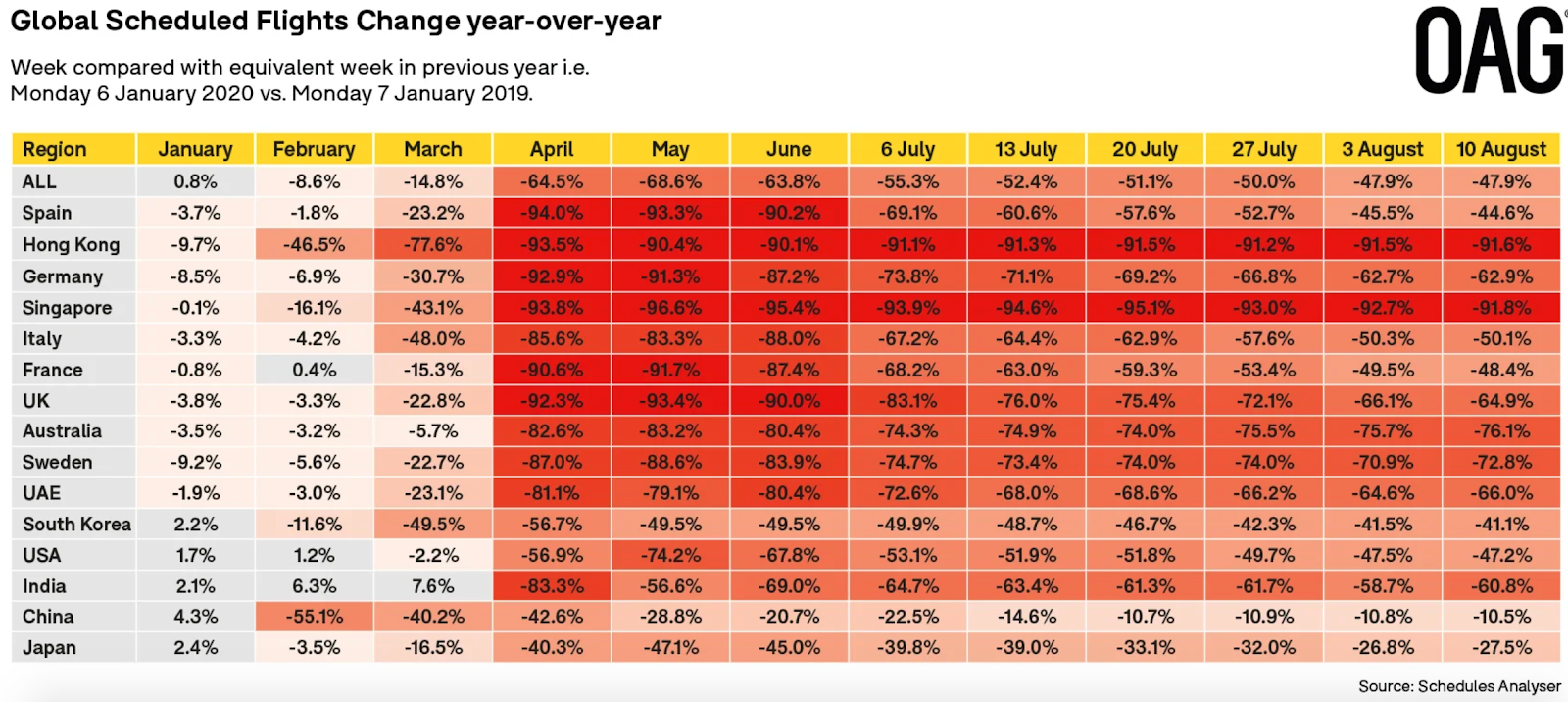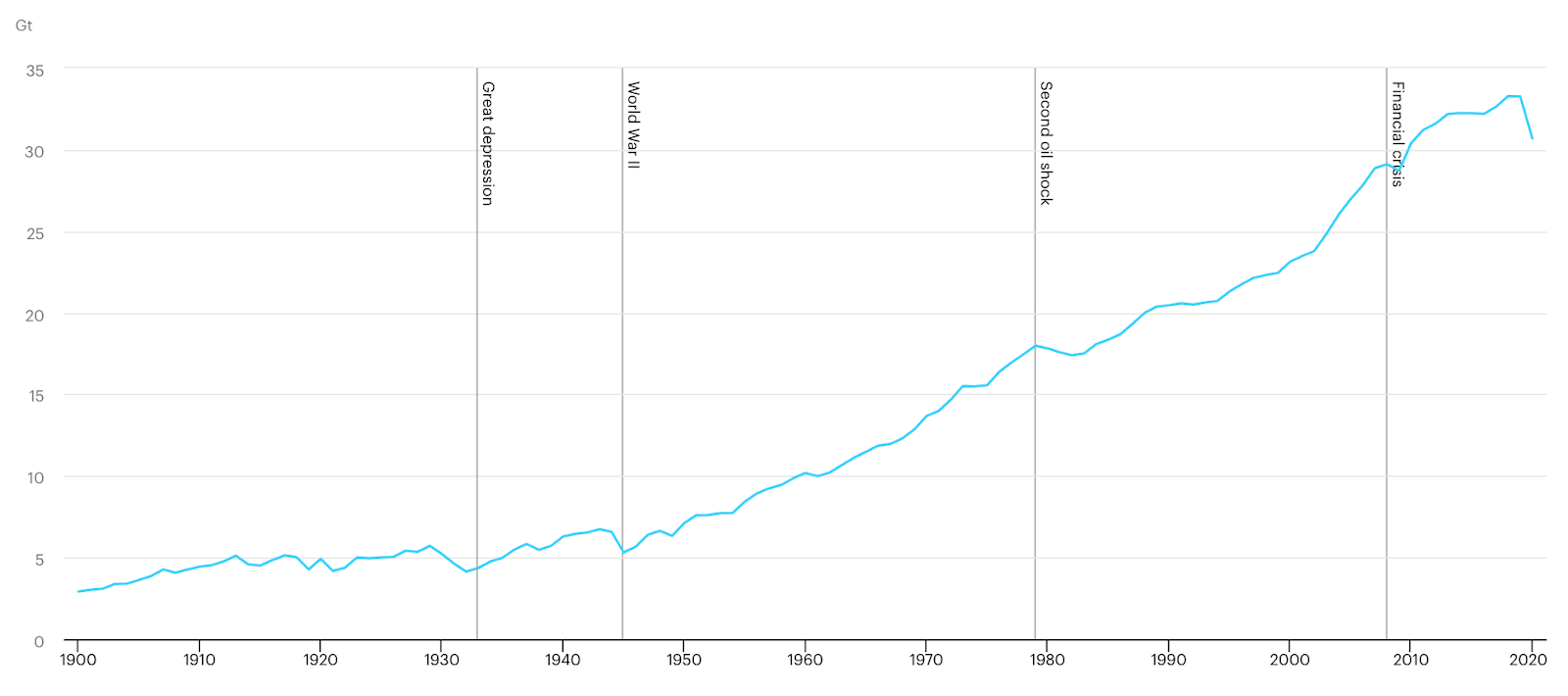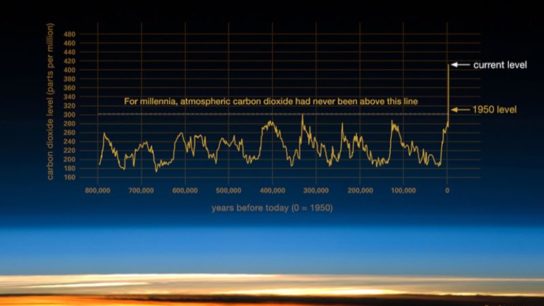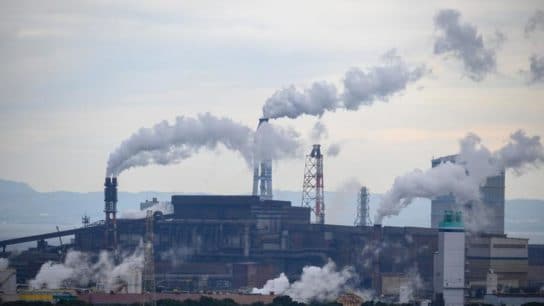Owing to COVID-19, carbon-emitting activities have been vastly reduced. The aviation industry has stalled and factories have suspended operations. In this article, we will evaluate the effects of COVID-19 on climate change.
—
How has COVID-19 affected climate change?
OAG, a global travel data provider, provides statistics regarding the change in the number of global flights since the start of 2020 as opposed to the same period in 2019. The data indicates that the world has recorded a >60% collapse in the number of flights from April to June and a >50% fall in July.

Source: OAG, Global Scheduled Flights Change 2019-2020
With many commercial activities being halted during the COVID-19 pandemic, the International Energy Agency (IEA) estimated the global carbon dioxide emissions would drop to 30.6Gt in 2020, or 8% less than in 2019. This decline is considered as the largest ever. It is 6 times more than the 0.4Gt drop in 2009 due to the financial crisis and twice that of the reduction due World War II. However, we remain at concentrations 11 times higher than in 1900, and this “big” drop in emissions will actually have a negligible impact on climate change.

Source: IEA, Global energy-related CO2 emissions, 1900-2020
How deadly is the impact of climate change when compared to COVID-19?
While the IEA contended the 8% drop in carbon emission is the largest decline in human existence, the world is still emitting 92% as much carbon dioxide as it did last year. The climate crisis is well on its way and much more daunting than we think. The World Health Organization contended that between 2030 and 2050, climate change will cause around 250,000 deaths per year, from malnutrition, malaria, diarrhoea and heat stress. Bill Gates warned, by 2060, climate change could be as deadly as COVID-19, and by 2100, it could be 5 times as deadly.
Climate change is much harder to tackle, and even a global lockdown couldn’t significantly slow its pace. Climate change could generate problems on human health and our societies of a much greater magnitude than we could have ever imagined.
This article was written by Jennie Wong.
You might also like: Permafrost Thaw In The Canadian Boreal Forest
References
-
OAG, Global Scheduled Flights Change 2019-2020, from: https://www.oag.com/coronavirus-airline-schedules-data
-
IEA, Global energy-related CO2 emissions, 1900-2020, from: https://www.iea.org/data-and-statistics/charts/global-energy-related-co2-emissions-1900-2020
-
THe Guardian, COVID-19 lockdown will have ‘negligible’ impact on climate crisis – study, from: https://www.theguardian.com/environment/2020/aug/07/covid-19-lockdown-will-have-negligible-impact-on-climate-crisis-study
-
TIME, The Coronavirus Pandemic Has Caused Carbon Emissions To Drop. But That Likely Won’t Last, from: https://time.com/5864374/coronavirus-carbon-emissions/
-
WHO, Climate change and health, from: https://www.who.int/en/news-room/fact-sheets/detail/climate-change-and-health










![The Statistics of Biodiversity Loss [2020 WWF Report]](https://u4d2z7k9.rocketcdn.me/wp-content/uploads/2020/12/lprwinkyTHB-544x306.jpg)





